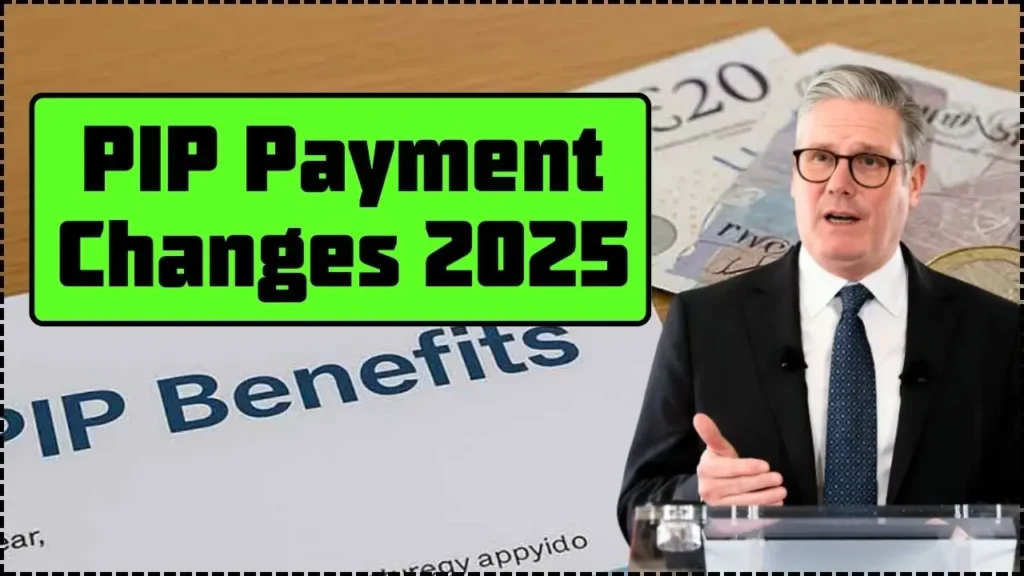Below is a draft news-style article. Based on currently verifiable sources, there is no confirmed £5,000-a-year PIP payment change as of 2025. The article clarifies what is proposed, what is reversed, and how it might affect claimants. You should cross-check with the Department for Work & Pensions (DWP) or official government legislation before treating this as final.

Rumours have circulated that PIP payment changes in 2025 will create a new support level of £5,000 a year for eligible claimants. In fact, no such payment has been confirmed. What is underway are proposed eligibility revisions to the daily living component, legislative delays, and assurances that existing claimants will be protected.
PIP Payment Changes 2025
| Key Issue | Current Status | Source / Note |
|---|---|---|
| £5,000 flat payment | Not confirmed – no government document supports this figure | See government briefings and Commons Library analysis |
| New eligibility rule (4-point rule) | Proposed change requiring 4 points in a single daily living activity | Commons Library, DWP consultation documents (House of Commons Library) |
| Protection for existing claimants | The government U-turned: changes will apply only to new claimants | Community Care, Commons Library (communitycare.co.uk) |
| Projected losses | Some estimates show losses of ~£4,500 for those losing entitlement | Commons Library, Government impact assessments |
What PIP Is Today
The Personal Independence Payment (PIP) provides financial support to people aged 16 to State Pension age who need help with daily living or mobility due to a long-term health condition or disability. Eligibility is assessed through a points system across various “activities.”
PIP is divided into two components:
- Daily Living – for those needing help with tasks such as preparing food, dressing, or reading.
- Mobility – for those who need help with moving around or planning journeys.
Each component can be paid at a standard or enhanced rate, depending on individual needs.
What Is Proposed — and What Is Delayed
The 4-Point Rule for Daily Living
One of the central proposals in the Pathways to Work reforms is to introduce an additional requirement for the daily living component. Under this rule, new claimants would need to score at least 4 points in a single daily living activity in order to qualify — rather than only relying on cumulative scores across multiple activities.
The government argues that this change would focus support on those with higher needs and control rising disability benefit spending.
Official estimates suggest this shift could lead to 370,000 current recipients losing the daily living component when reassessed, and an average annual loss of £4,500 per affected claimant.
U-Turn and Protection for Current Claimants
In July 2025, the government reversed parts of its proposal after strong resistance in Parliament and concerns from disability groups. The revised approach is that the stricter eligibility rules would apply only to new PIP claimants, while existing claimants would retain their current criteria.
Moreover, the bill includes a 13-week transitional period for those who lose entitlement to the daily living component.
The Universal Credit and Personal Independence Payment Bill 2024-25 originally contained the 4-point rule in its clauses. But by the bill’s committee stage, the government announced an amendment removing those clauses and pledged to require a full review led by the Social Security Minister Stephen Timms before any future changes.
Therefore, no new PIP criteria changes take effect in 2025, and any new rules would be introduced after the review concludes.
Why the £5,000 Claim Is Misleading
The figure of £5,000 a year appears to be a misinterpretation or exaggeration. No official document or legislative text supports such a flat payment. Instead:
- The average loss cited in government impact modelling is £4,500 for those who lose daily living support.
- What was true is that existing PIP claimants were once estimated to face losses of £3,800 or £5,700 per year if reforms had applied to them. However, this was before the U-turn that exempted current recipients.
- Because the government has now committed to protecting current claimants and delaying substantive changes until after a review, there is no mechanism to deliver a new £5,000 payment level in 2025.
In short: the £5,000 claim conflates possible loss figures, proposed changes, and misread policy language.
Who Might Be Affected — and How
If the proposed reforms eventually come into effect (post-review):
At Risk Groups
- People who currently qualify by accumulating points across several daily living activities, but who never score 4 points in a single one, may lose eligibility.
- Those with conditions that lead to moderate limitations in many tasks, but severe limitation in none, are especially vulnerable.
- Claimants assessed during a reassessment cycle (after the review) risk losing entitlement.
Protected Groups
- Current recipients of PIP at the time of the reform will be unaffected, under the government’s protection commitment.
- New claimants will be subject to the new criteria once they’re enacted.
Advocacy groups have expressed concern that hundreds of thousands could lose PIP under stringent rules.
What You Should Do Today
- Verify your claim status: If you’re a PIP claimant, check whether your award is due for review.
- Prepare medical evidence: Ensure supporting documents are current and comprehensive.
- Understand scoring descriptors: Learn how PIP daily living activities are scored — and which ones could yield higher points.
- Monitor developments and consultations: The Timms review will shape future reforms.
- Seek advice early: Disability advice charities, legal aid, or welfare advisers can help you understand how proposals may affect you.
Related Links
UK Bus Pass Changes 2025 – New Eligibility Rules Take Effect from October 2025
New UK Pension Withdrawal Limits Announced – Why Thousands of Retirees Are Furious
UK Over-60s Can Now Get a Free TV Licence – Here’s How to Apply Under the 2025 Rules
Outlook and Uncertainties
At present, the claim of £5,000 a year for PIP support is unsubstantiated by legislative or policy texts. What is real are proposals to tighten eligibility by adding a 4-point in one activity requirement, delayed implementation, and protections for current claimants.
The timing and shape of any actual changes hinge on the forthcoming review and political negotiation. Claimants and advocacy groups will be watching closely to see whether the reforms prioritize fairness, support for those with high needs, or fiscal restraint.
If you like, I can prepare a side-by-side comparison of current PIP rules vs proposed rules, or a simple “Does the £5,000 claim apply to you?” eligibility checklist. Do you want me to do that?












 Claim Here!
Claim Here!